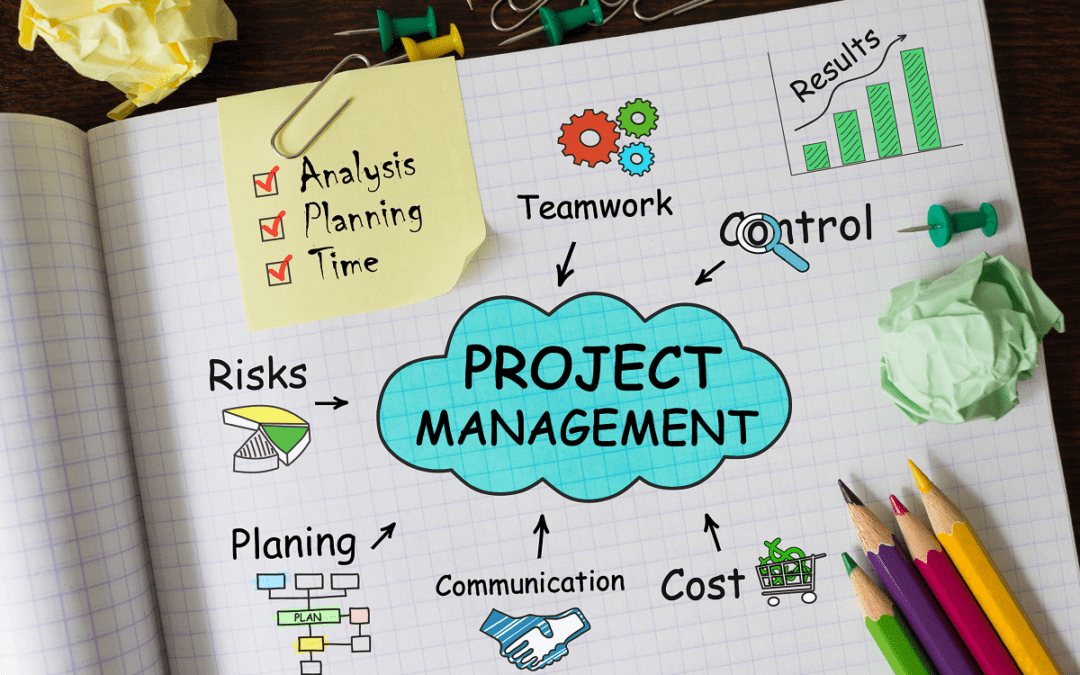Quality in project management has developed significantly in recent years. This is not least because a uniform understanding of processes has developed as a result of standardised certification processes, such as according to IPMA or PMI, and quality criteria have been created that have become established.
Nevertheless, depending on which of the many studies on this topic one may believe, between one and two-thirds of all projects still do not achieve the target criteria defined at the beginning of the project. If you take a closer look at these projects, you quickly realise that it usually does not lack the “classic” technical project management know-how. Still, that deficits in social competencies (the so-called “soft skills”) play an increasingly important role.
1. the foundation: effective communication
“If I had known this at the beginning of the project, we would have saved ourselves many hours in implementation”. This quote from a project staff member at the concluding project experience workshop is just one example of the fatal effects of poor communication in projects.
Communication plays a decisive role in every phase and with everyone involved. Whether it’s about clarifying the customer’s requirements at the beginning, managing the flow of information within the team or reporting the project’s progress to the client – effective communication is always at the centre.
Effective” does not only mean listening attentively or being able to convey one’s own “message” well. It means giving the interlocutor the feeling of being understood and taken seriously. This can only work if your attitude (or inner attitude) is correct.
An example: If a project manager goes into a meeting with the inner attitude “this annoying and irritating customer will surely torment me again”, there is a high probability that the meeting will be difficult. Signals are unconsciously sent out through body language, gestures and facial expressions, which are then “in the room” and are also unconsciously perceived by the other person.
It is helpful to receive honest and constructive feedback from colleagues regularly. Therefore, the goal must be to reflect on and change one’s attitude. This process does not work overnight, but only in the medium to long term and in small steps.
In this way, it can reduce one’s own “blind spot” and strengthen social competence in the long term.
2. dealing with conflicts and crises
If you talk to project managers about possible conflicts in their projects, you often get the impression that this is not a real issue for them.
The term “conflict” has a predominantly negative connotation in our society and, thus, among most project managers. The fear of negative emotions and possible injuries leads to an “avoidance strategy” hoping that the problem could solve itself.
But this kind of behaviour tends to worsen the situation and often leads to escalation. Yet conflicts are nothing more than different views and opinions – something completely normal when people with varying systems of value meet to work together on a project.
The aim should therefore be to unite the different perspectives and opinions. This way, completely new and valuable possibilities and ideas can emerge, indispensable contributions to any project. Consequently, it is crucial to recognise conflict as an opportunity.
Project managers’ task should be to deal with conflicts professionally and not be afraid to address them actively. This should be done in an appreciative, constructive and solution-oriented way. Giving all points of view their justification and space allow negative emotions and injuries to be avoided.
This is the only way to create constructive and productive cooperation in the long run.
3. can one learn “social competence”?
Yes – of course! However, the learning process is completely different from that in classic specialised training.
The development of soft skills is primarily about providing a space for reflection. The participants are given the opportunity to reflect on their own behaviour. An essential factor is to receive appreciative feedback on one’s own behaviour and to learn and benefit from the experiences of others.
In this way, the individual participants can gain valuable insights into their own personalities. A basic prerequisite for this is that the person concerned wants to develop him/herself and his/her social competence. This can only be done on a voluntary basis, with the desire to change. Only in this way can feedback be accepted and a change in thinking emerge.
However, “ingrained” patterns, ways of thinking and behaviour cannot be changed overnight. This is a process that takes time and requires reflection on one’s own behaviour again and again.
Coverdale offers a range of social skills’ development training. You can find out more at https://www.coverdale.at/portfolio/


Recent Comments